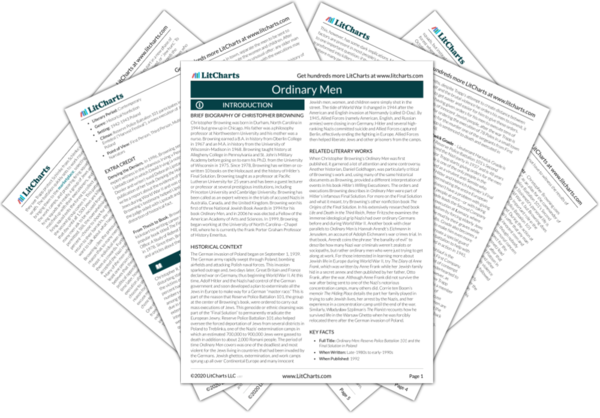Although there are a lot of men who keep themselves out of the firing squads, Buchmann is the only man who consistently verbalizes both his own unwillingness to be a part of the violence and criticism of the violence itself. In this, Buchmann makes himself a radical nonconformist within the battalion. His words and actions inspire others to stand up and demand to be excused from the violence, as well. It’s also noteworthy that Kammer excuses them even though he clearly doesn’t want to (shown by how he berates them beforehand instead of simply letting them off). Throughout the battalion’s time in Poland, this is the worst the men can justifiably expect from their commanders if they don’t want to shoot. They might get insulted, but they don’t face heavy punishments for not wanting to kill unarmed civilians. This is because their commanders are unwilling to create more problems for themselves by harassing the minority of men who don’t want to participate.
